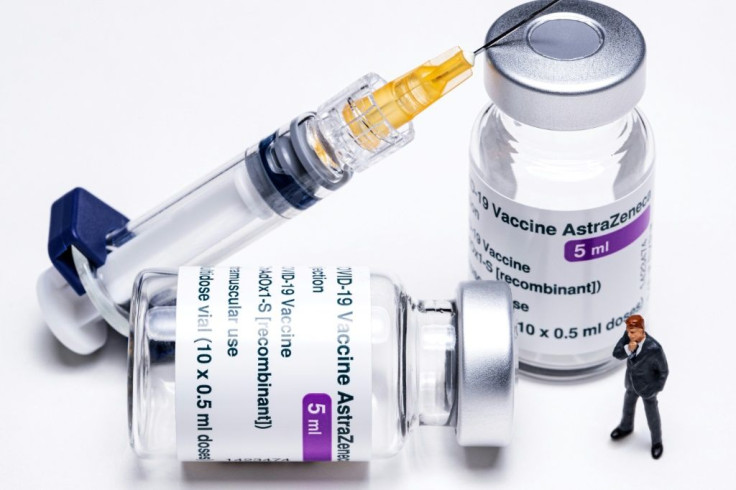AstraZeneca COVID-19 Vaccine Has Direct Link To Rare Blood Clots, EMA Senior Official Says
KEY POINTS
- A top official from the EMA said AstraZeneca's vaccine is directly linked to rare blood clots
- CVST is a rare disorder where clotting forms in the sinuses, causing blood to drain from the brain
- The EMA is expected to release more details about its findings this week
AstraZeneca’s COVID-19 vaccine is directly linked to a rare blood clotting disorder seen in some people, a senior official from the European Medicines Agency (EMA) said Tuesday.
Britain’s Medicines and Healthcare products Regulatory Agency (MHRA) said it received 22 reports of cerebral venous sinus thrombosis (CVST) among people who had been given a dose of AstraZeneca's vaccine. CVST is a rare blood disorder in which clotting forms in the dural venous sinuses, causing blood to drain from the brain.
Marco Cavaleri, chair of EMA's vaccine evaulation team, told Italy’s Il Messaggero newspaper that the EMA is preparing to release a more detailed statement this week.
“It is becoming more and more difficult to affirm that there isn’t a cause-and-effect relationship between AstraZeneca vaccines and the very rare cases of blood clots associated with a low level of platelets,” Cavaleri said.
“In my opinion, we can say it now, it is clear there is a link with the vaccine,” he added. “But we still do not know what causes this reaction.”
The EMA press office later noted that the agency has not yet reached a conclusion and that they are still reviewing the case. It said it planned to hold a press conference on Wednesday or Thursday.
Cavaleri’s statement was the first indication from a regulatory body that the blood clots could be a very unusual side effect of the AstraZeneca vaccine. Regulators are now considering whether they should issue formal warnings about the potential dangerous side effect.
The University of Oxford, which developed the vaccine in partnership with AstraZeneca, also announced the suspension of its two-month-old trial that studied whether the vaccine was safe for use in children and teenagers.
A spokesperson told CNN that researchers had not seen any safety concerns during the trial in children, but said they would hit pause while MHRA reviews cases of CVST in some adult recipients.
"Parents and children should continue to attend all scheduled visits and can contact the trial sites if they have any questions," the spokesperson added.
The agency did not say how many cases of CVST they expect to see among the 15.8 million people who received the AstraZeneca vaccine in the U.K.

© Copyright IBTimes 2025. All rights reserved.






















